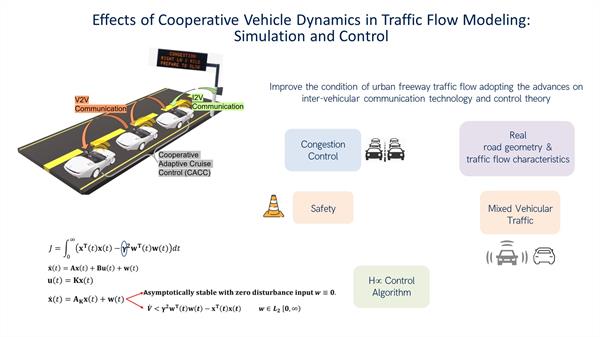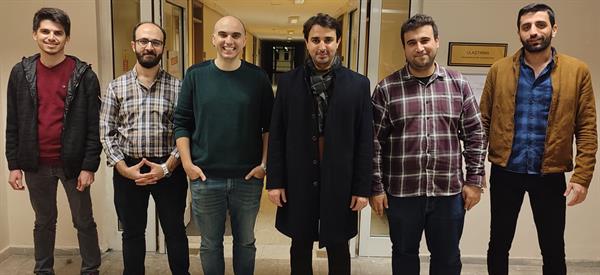Project Title: Effects of Cooperative Vehicle Dynamics in Traffic Flow Modeling: Simulation and Control
Project Type: TÜBİTAK-1001
Project Coordinator: Prof. Dr. Hilmi Berk Çelikoğlu
The proposed study, supported in part through TUBITAK 1001 Programme with around USD95000 of budget, concentrates on explicitly analyzing the effects of cooperative vehicle dynamics in traffic flow in the purpose of proposing an overall frame for modeling, simulation and management of mixed traffic that is set with the integration of a traffic flow model and a control approach. Therefore, considering the needs for coping with traffic in conjunction with the existing technological advances; the main problem handled in the present study is the congestion and safety effect of vehicular traffic, and the solution sought is to improve the condition of urban freeway traffic flow adopting the advances on inter-vehicular communication technology and control theory.
The novel contribution of the study proposed is that a comparative evaluation of the control algorithm H∞, which will be used for the first time in the literature for imposing an integrated variable speed limiting and ramp metering control to mixed traffic flow on freeways. Models and methods available to be utilized in an integrated control and inter-vehicular communication technology will be used to seek solutions. The comparative evaluation of the proposed method with respect to an existing frequently employed control method will be performed alternating the car-following behavior model in simulation environment with intervention using the application-programming interface. The success of the proposed solution framework will be discussed dependent on tests considering the performance metrics frequently used in the existing literature, i.e., delay, system travel time, fuel consumption, emissions, and, etc.
The feature of the study requires the employment of multiple methods as the analytical car following models and the control algorithms are to be integrated to a traffic simulator. Therefore, analytical and simulation-based optimization methods will be used. In the purpose of proposing an overall frame for modeling, simulation and management of mixed vehicular traffic, the proposed study concentrates on analyzing in details the effects of cooperative vehicle dynamics in traffic flow considering explicitly the approaches to the modeling and control of traffic flow.
As congestion and accidents are two main consequences of vehicular traffic that have impacts from several aspects ranging from user level to system level, contributions of the present study lie in congestion control domain with an integrate modeling and control structure for mixed traffic, including autonomous vehicles, propagating over a network.

